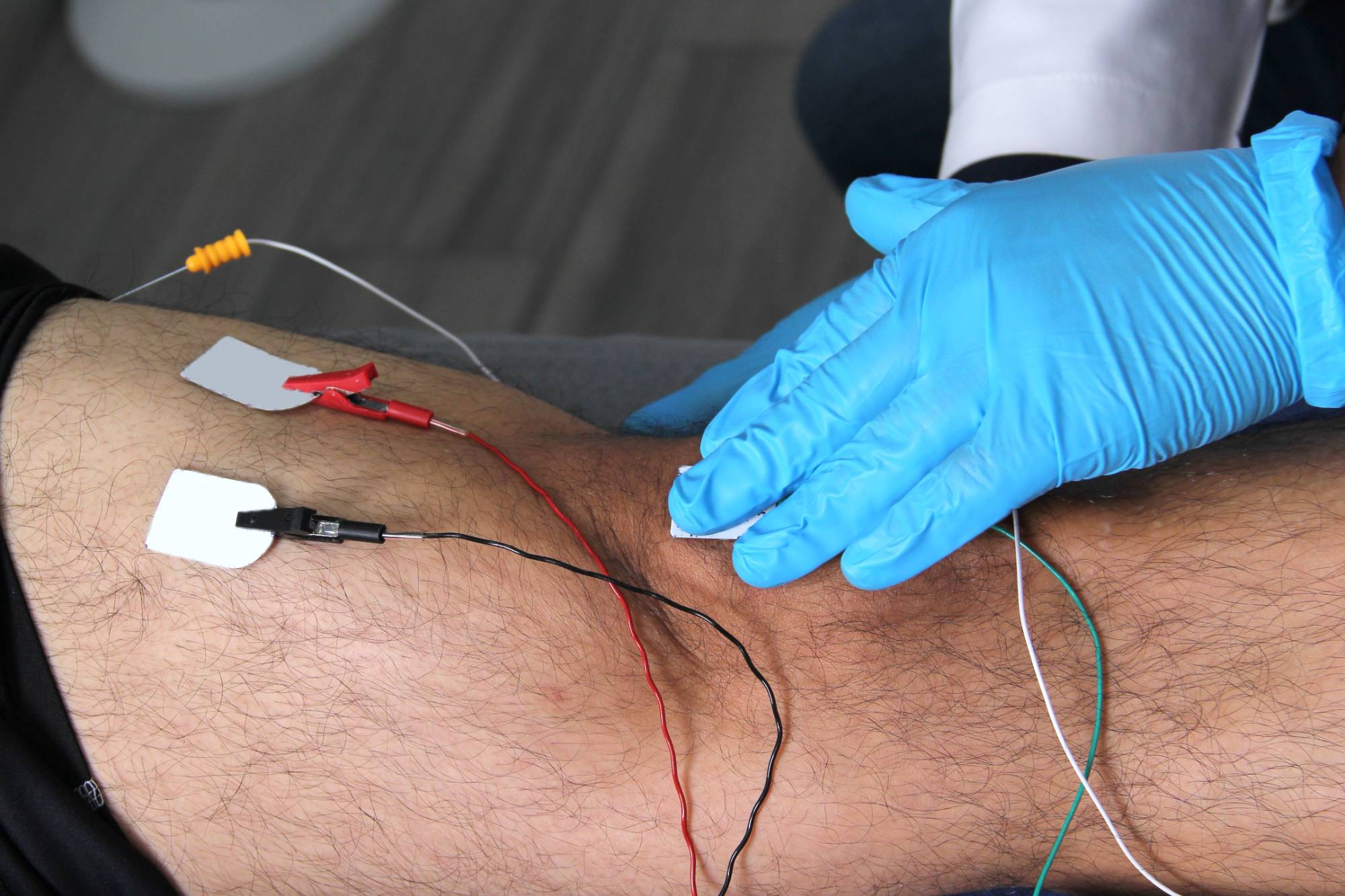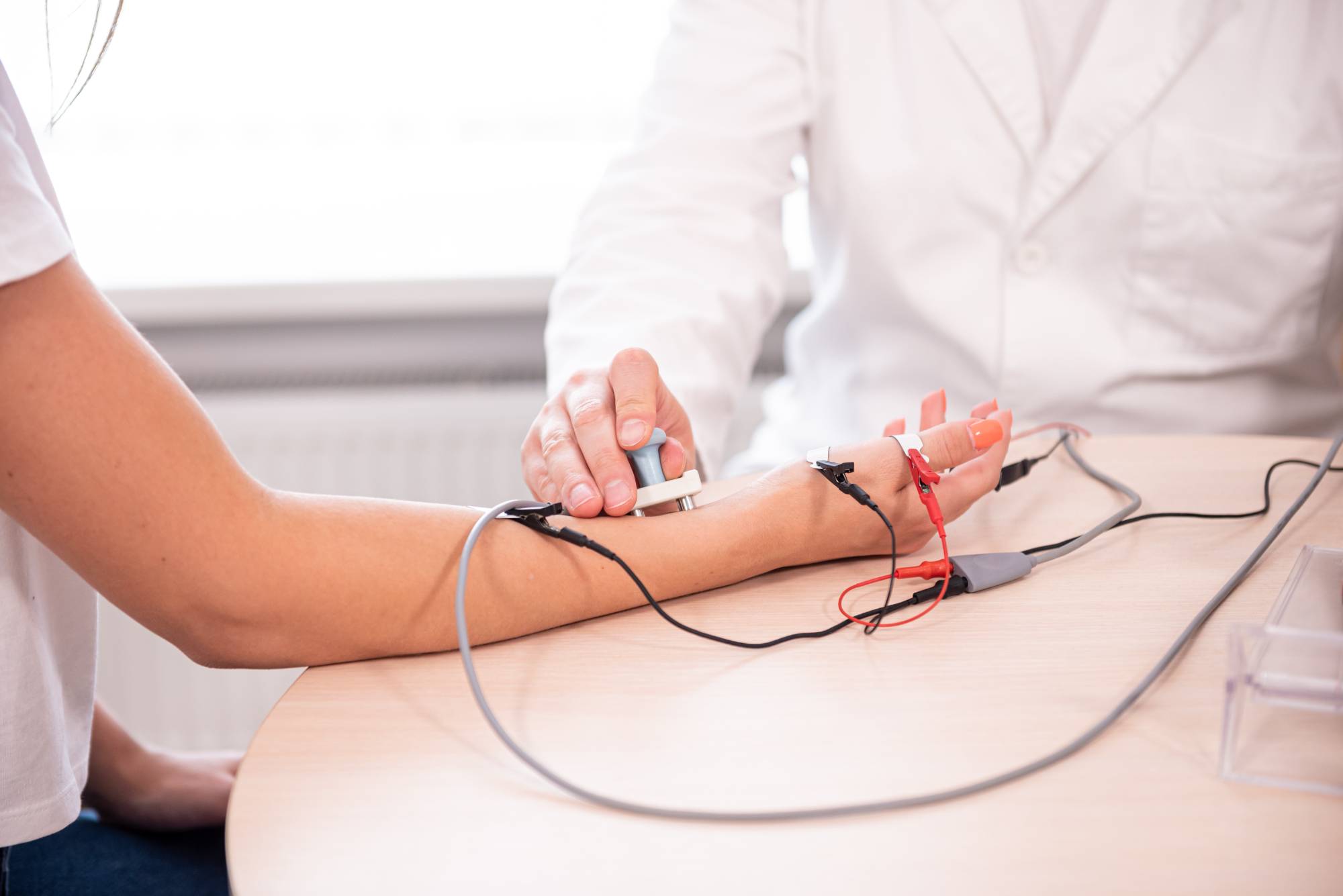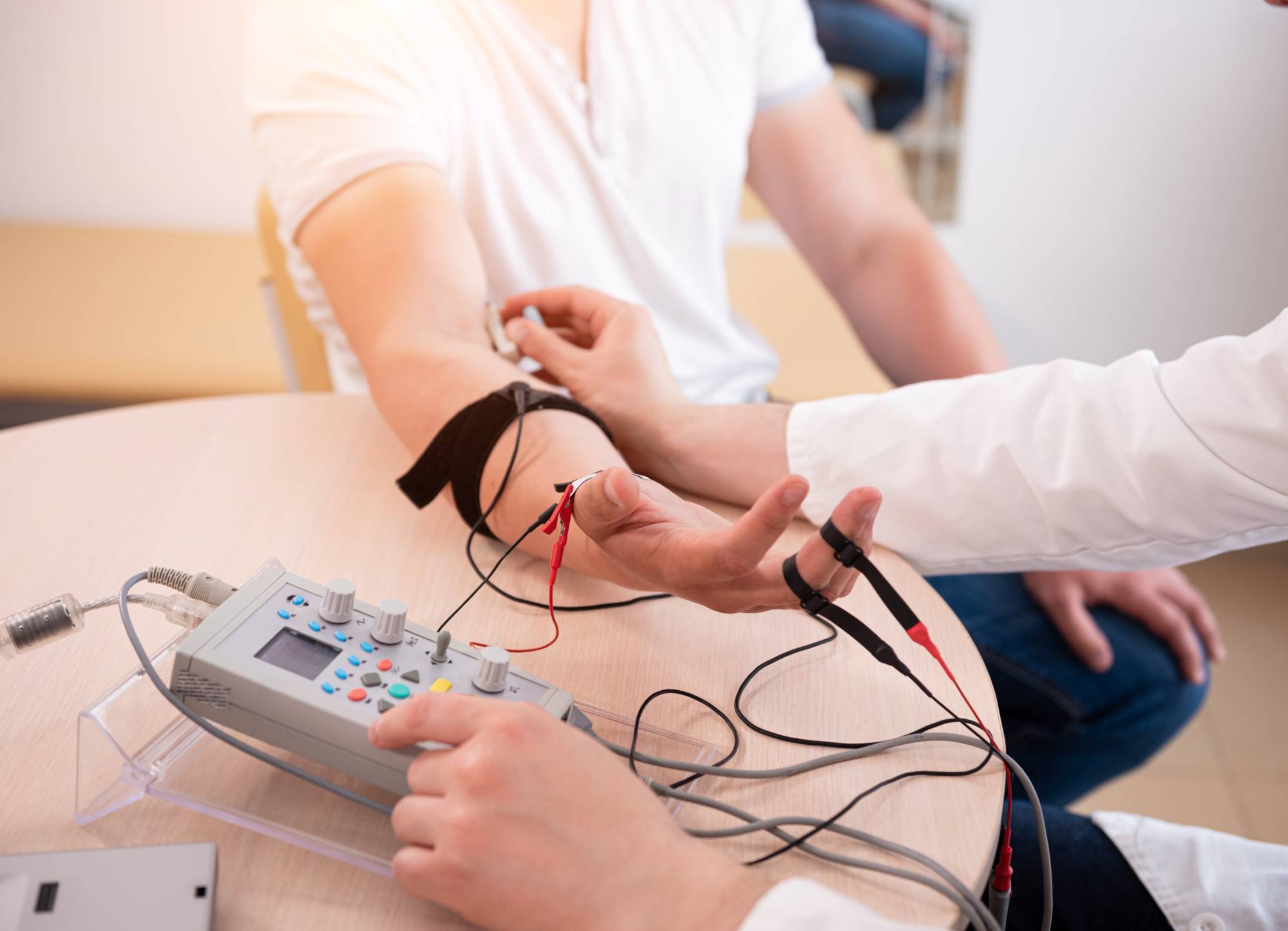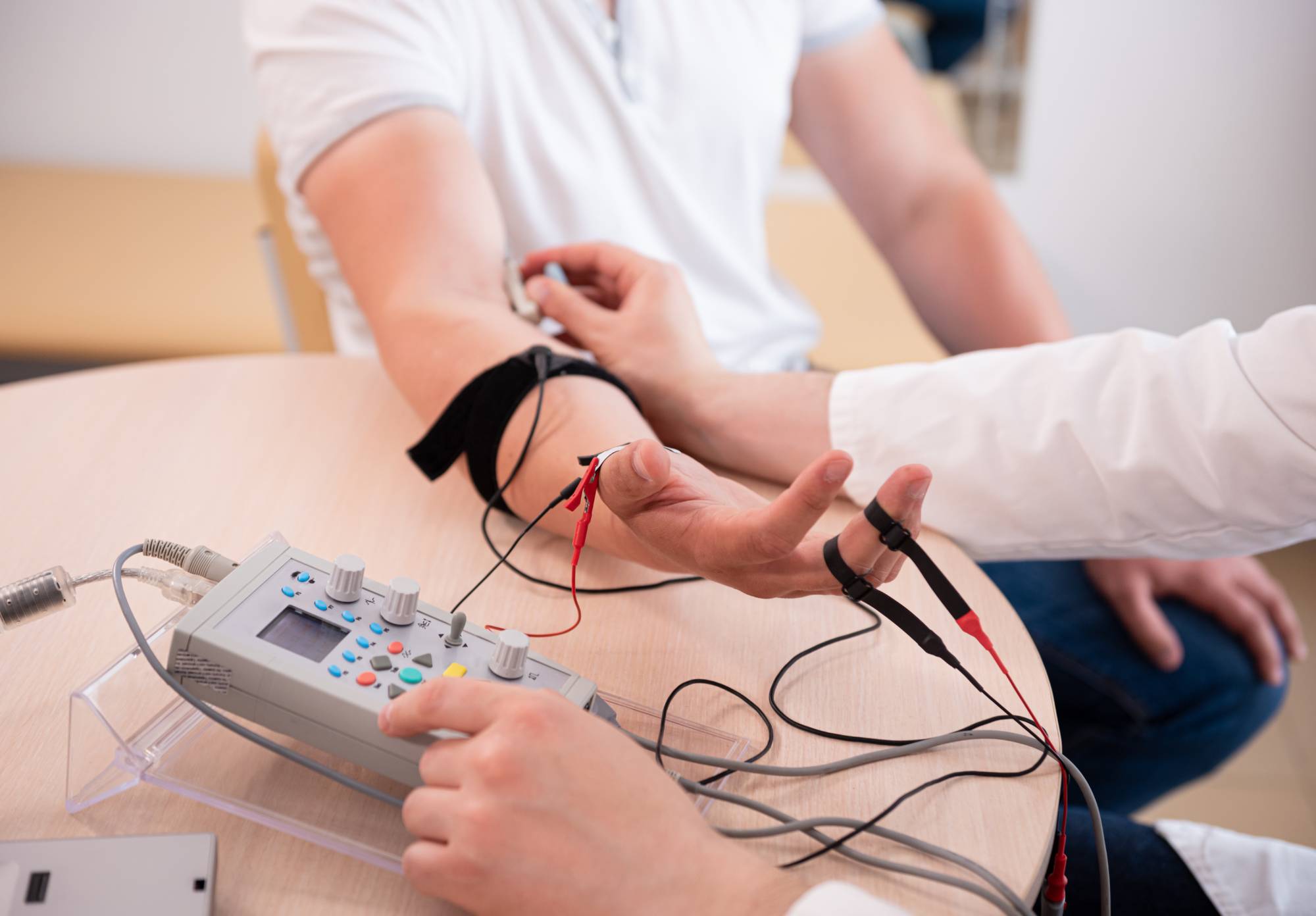Advanced electromyography testing that pinpoints exactly what’s causing your numbness, tingling, or muscle weakness.

Reviews

You’ve been dealing with unexplained symptoms long enough. That tingling in your hands, the muscle weakness, the shooting pain down your leg – you need real answers, not more guessing.
EMG testing gives you exactly that. Within one appointment, you’ll know if your nerves are damaged, how severe the problem is, and what treatment options will actually work for your specific condition.
No more wondering if your symptoms will get worse. No more failed treatments because nobody knew what they were treating. You’ll walk out with a clear diagnosis and a plan that makes sense for your situation.
We’ve been providing specialized nerve and spine care to South Florida residents for years. Our team focuses exclusively on diagnosing and treating conditions that cause nerve pain, muscle weakness, and spinal problems.
Every EMG test is performed by our board-certified specialists who understand exactly what they’re looking for. You’re not getting a rushed appointment with someone who does a little bit of everything.
Our Country Club location means you don’t have to drive across town or wait weeks for an appointment. You get expert care close to home, with the personalized attention that larger hospital systems can’t provide.

The EMG test happens in two parts, both done during the same visit. First is the nerve conduction study, where small electrical pulses test how well your nerves send signals. You’ll feel a brief tingling sensation, but it’s not painful.
Next is the electromyography portion, where a thin needle electrode measures electrical activity in your muscles. Our specialist inserts the electrode into specific muscles to see how they respond to nerve signals.
The entire process takes 30-60 minutes depending on which nerves and muscles need testing. You’ll get your results immediately after the test, with a clear explanation of what everything means and what your next steps should be.

Ready to get started?
Your EMG testing includes both electromyography and nerve conduction studies in one appointment. This comprehensive approach tests both your nerves and muscles to give you the complete picture of what’s happening.
The testing can diagnose carpal tunnel syndrome, sciatica, diabetic neuropathy, herniated disc nerve compression, muscle disorders, and other conditions causing your symptoms. You’ll receive detailed results that your referring doctor can use to create an effective treatment plan.
Most insurance plans cover EMG testing when medically necessary. We handle all the insurance paperwork and provide transparent pricing information upfront, so you know exactly what to expect.

New York:
Florida:
Support